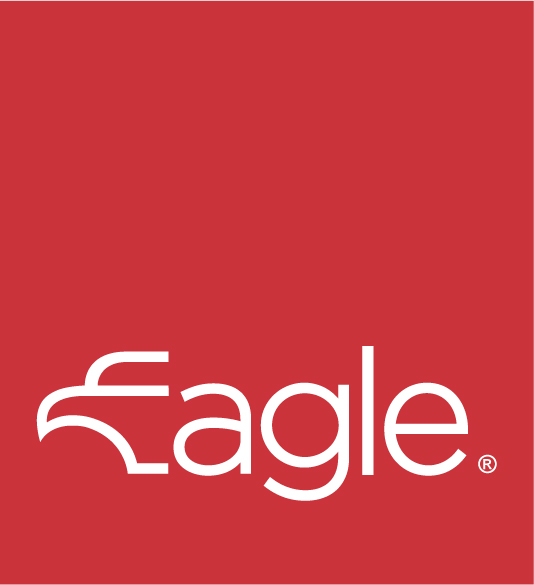Ethical and Responsible Glove Sourcing
At Eagle Protect, we believe in developing partnerships with our customers and safeguarding what matters most to them. Whether it’s premium products and service, a transparent and traceable supply chain, ethical sourcing or reduced environmental impact, customers benefit from our care and integrity, values embedded in our Eagle Standard.
The disposable glove industry is vast, producing more than 150 billion pairs each year, primarily for the food and healthcare sectors, with the leading regions of export to the USA, EU and Japan. Much of this production occurs in Malaysia and Thailand, where factories rely heavily on migrant workers. Unfortunately, the industry has long been associated with poor quality standards, unsafe working conditions and widespread forced labour allegations, issues that have led to billions of dollars’ worth of imported NZ goods being linked to modern slavery, and major manufacturers facing legal action for exploitative practices.
Exposed Labour Violations

Investigations over the past decade have repeatedly uncovered serious labour rights abuses at glove factories supplying both small distributors and global brands. These violations include withheld wages, forced and unpaid overtime, passport confiscation, and unsafe living and working conditions.
The consequences have been significant. For example, WRP Asia Pacific had its gloves banned from entering the US under forced labour laws, following reports of extensive worker exploitation. Top Glove, the world’s largest supplier, has also been scrutinised for similar violations across its vast network. These examples underline the high-risk nature of the sector, as highlighted in the BMA’s In Good Hands report, and reinforce the responsibility of manufacturers, suppliers and end-users to protect workers throughout the supply chain.
Across global industries, companies are increasingly taking a stand, such as the boycott of the Dhaka Apparel Summit, to call attention to worker mistreatment and encourage more sustainable and ethical practices. Disposable glove users have the same power. By demanding transparency and documented ethical sourcing, organisations can directly influence improvements within the industry and protect their own brand reputation.
A Glove Company Founded on Honesty and Integrity
Eagle Protect sells disposable gloves and clothing to the food and medical sectors. As a Certified B Corporation™, since 2012, we’re recognised for meeting rigorous standards of social and environmental impact, business accountability and transparency.

Our ethos is built on three pillars:
1. Ethical Supply Chains
We visit our factories to ensure workers are treated fairly, paid appropriately and work in safe environments. All suppliers undergo rigorous assessments, ensuring environmental and social impacts are properly managed, and no worker is exploited.
2. Safety & Transparency
Understanding where gloves come from and the hygiene and material standards they meet is essential. Few safety checks exist on gloves entering New Zealand, yet these products directly touch food, patients and vulnerable individuals.
To address this, Eagle has partnered with an FDA award-winning traceability platform to securely capture and share supply chain activity from manufacturer to customer.
3. Reducing Environmental Impact
We aim to minimise the environmental impact of disposable gloves by sourcing better-quality raw materials & refining glove design to reduce product failure and waste. Our environmental and social impact reporting reflects this ongoing commitment.

To learn more, you can listen to Steve Ardagh’s interview with ‘Great.com Talks with’, which explores Eagle Protect’s role in driving positive change across the glove industry.
Our Unique Standards and Certifications
Eagle Supplier Code of Conduct

The Eagle Supplier Code of Conduct defines standards for fair, safe and healthy working conditions and environmental responsibility throughout our supply chain.
Our Code is based on International Labor Organization (ILO) standards and internationally accepted good labour practices. All Eagle suppliers must commit to the intention of this Code of Conduct, which applies to their full supply chain, including sub-suppliers, subcontractors, temporary and migrant workers.
WRAP Certification

The majority of our gloves are manufactured in Gold level WRAP certified facilities, which meet internationally recognised social, ethical and sustainable compliance standards. These manufacturers are committed to the annual recertification program with WRAP, which awards certification only after lengthy audit processes and proof of maintenance of the 12 WRAP Principles:
- Compliance with Laws & Workplace Regulations
- Prohibition of Forced Labour
- Prohibition of Child Labour
- Prohibition of Harassment & Abuse
- Compensation & Benefits
- Hours of Work
- Prohibition of Discrimination
- Health & Safety
- Freedom of Association & Collective Bargaining
- Environment
- Customs Compliance
-
Security
Certified B Corporation

Eagle Protect is a founding B Corp certified company (since 2012), committed to the constant improvement of social and environmental performance, accountability and transparency of our company and our suppliers. Eagle remains the only PPE supplier globally to hold this certification.
Sedex & SMETA

Eagle’s key suppliers partner with the SEDEX (Supplier Ethical Data Exchange) online platform to share their social and ethical audit status. The Sedex platform allows users to conduct risk assessments across their supply chain, and enables audit sharing between supply chain partners - reducing audit fatigue and increasing transparency with results and ongoing improvements. These suppliers conduct SEDEX Members Ethical Trade Audits (SMETA), with accredited third-party auditors, to assist Eagle in evaluating suppliers’ labour, health and safety, environmental and business ethical standards. This partnership provides Eagle and their customers with independent verification of standards.
Traceability
Supply chain traceability and visibility, including responsible sourcing and quality and safety testing certification for the core range of Eagle gloves, is also available by FDA-award-winning tech using QR code scanning on individual Eagle glove boxes.
When you choose Eagle Protect, you’re choosing more than premium gloves. You’re selecting ethical practices, verified standards, worker protection and meaningful environmental responsibility. Together, we can improve industry standards and ensure safer, more transparent supply chains.


